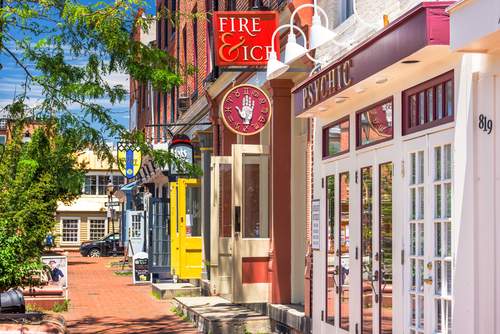COVID-19 has wreaked havoc on virtually every aspect of our economy, but it’s been especially challenging for minority-owned small businesses in underserved communities which were disproportionately affected by the pandemic. One of the biggest obstacles these businesses are facing is limited access to credit and capital. According to McKinsey’s US Small Business Pulse Survey, 42 percent of minority-owned small businesses reported that obtaining credit is becoming increasingly difficult. And according to a Global Strategy Group survey, only 12 percent of black and Latino business owners who applied for Paycheck Protection Program (PPP) loans early on reported receiving them. These small businesses are in dire need of a lifeline to survive the myriad of challenges that the pandemic and widespread social unrest are posing.
CDFIs Provide Varied Benefits For Minority-Owned Small Businesses
Community Development Financial Institutions, commonly known as CDFIs, are stepping up to help small businesses in underserved communities stay afloat during the pandemic. CDFIs are private financial institutions wholly dedicated to delivering responsible and affordable lending to help lower-income communities join the economic mainstream. It’s important to point out that CDFIs prioritize community needs over shareholder needs; they are profit-seeking, but not profit-maximizing. By financing community businesses—including small businesses, micro-enterprises, nonprofit organizations, commercial real estate and affordable housing—CDFIs are helping spark economic growth at a time when it’s most needed.
The pandemic put CDFIs on the front lines of economic response, and they have played an integral role in providing financial relief in the form of loans, training, technical assistance services and education surrounding effective use of credit and capital. In addition to establishing relief funds for local businesses experiencing income loss, CDFIs have offered loan deferments, forbearances and modifications with flexible terms to address the immediate needs of their borrowers. More recently, when CDFIs were finally allowed to become PPP lenders, they showed remarkable success, outperforming much larger and better-capitalized lenders —according to the Opportunity Finance Network (OFN), the national association for CDFIs.
CDFIs Are Receiving National Attention
As the discussion around diversity and racial equity has elevated, large institutions are making greater commitments and investments into CDFIs. Recently, Bank of America made a $1 billion, four-year commitment to advance racial equality and economic opportunity, Mastercard made a $20 million deposit to boost the lending power of CDFIs and JP Morgan Chase awarded $5 million to CDFIs in Portland. Even with this infusion of support, the FDIC is encouraging more widespread investment in the future of mission-driven CDFIs.
Importantly, the incoming Biden administration has signaled its commitment to increased funding for CDFIs, which will help create a more favorable environment for them to thrive. The new administration views CDFIs as a way to close the racial wealth gap and help minority-owned small businesses attract capital. More specifically, Biden’s plan doubles CDFI funding and expands their capacity to offer both micro-loans to small start-ups and larger loans to existing small businesses who have the capacity to grow. Biden will use the Small Business Opportunity Fund to strengthen CDFI stability and lend through targeted policies, such as those proposed in the Jobs and Neighborhood Investment Act. He will also help ensure that small businesses have access to relief and PPP, especially those owned by minority community members.
While the pandemic has heightened many of the challenges minority small businesses owners face, CDFIs represent an important conduit for owners to secure capital, resources and support needed to keep their businesses running. Now that CDFIs have generated positive attention at the national level, continued investment will not only improve the long-term health of the US economy, it will also hopefully foster a more equitable society. And with about half of small businesses facing failure due to business closures related to the pandemic, there’s never been a better time to leverage the community-based insights and small business lending products of CDFIs.



